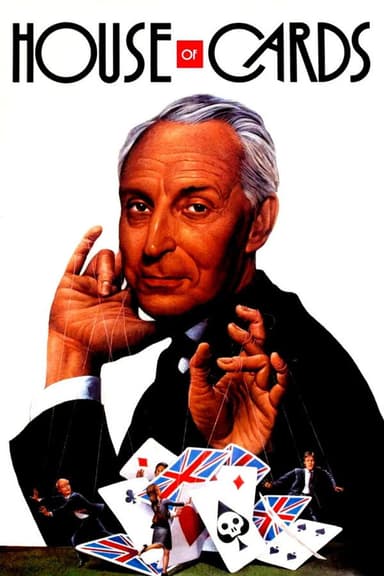
Strangers and Brothers
1984 • Drama
As World War II looms in Europe, an ambitious young English lawyer embarks on his tempestuous career, and even stormier romantic life. Based on the novel series of the same name by C.P. Snow.
Why you should read the novels
C. P. Snow's 'Strangers and Brothers' novels offer a sweeping, immersive journey through British society, politics, and academia, told with extraordinary psychological and philosophical insight. In the richly layered prose of the books, readers can explore the inner conflicts, ambitions, and ethical dilemmas of Lewis Eliot and the people who surround him, gaining a depth of understanding and empathy that TV cannot fully convey.
While the television adaptation captures the era and major events, it inevitably simplifies the intricate motivations and personal histories that drive Snow's characters. The books allow for a slower, more contemplative pace, where the nuances of class, power, and conscience are given the space they deserve. Snow's keen observations and moral questions linger long after each novel is finished.
If you’re seeking an intellectual and emotional experience, the novels far surpass what the screen can offer. Reading 'Strangers and Brothers' unlocks the full philosophical framework, subtle tensions, and literary artistry that underpin this unique chronicle of 20th-century Britain. Dive into the novels for an experience of complex ideas, vivid settings, and resonant themes that the TV series can only hint at.
Adaptation differences
One of the primary differences between the TV series and the novels is the compression of time and the omission of several subplots. The novels span decades and feature a vast, interwoven cast; the series is necessarily more limited in scope and has to condense or combine events to fit the episodic format.
Characterization is also impacted in the transition to screen. Lewis Eliot's interior monologue, his doubts, philosophical reflections, and personal growth, are rendered more superficially in the TV adaptation. The contemplative narrative voice that lies at the heart of the novels is replaced by external action and dialogue, changing the emotional resonance and complexity of key moments.
Additionally, the adaptation often clarifies or dramatizes issues which, in the novels, remain ambiguous or morally complex. The interior struggles of characters are sometimes replaced by more obvious confrontations, or even omitted entirely. This shifts the series' tone, making the themes more accessible but less nuanced than in the books.
The TV series does succeed in visualizing the period detail and bringing to life some of the dramatic confrontations, but it cannot fully capture the intricate web of relationships and subtle tensions that give Snow’s novels their unique power. For a true appreciation of the story's philosophical and emotional depth, the books are indispensable.
Strangers and Brothers inspired from
George Passant (Strangers and Brothers)
by C. P. Snow
Strangers and Brothers (series)
by C. P. Snow
The Masters
by C. P. Snow
Last Things
by C. P. Snow
Corridors of Power
by C. P. Snow
Time of Hope
by C. P. Snow
The Affair
by C. P. Snow
The New Men
by C. P. Snow
The Light and the Dark
by C. P. Snow
Homecomings
by C. P. Snow
The Sleep of Reason
by C. P. Snow
The Conscience of the Rich
by C. P. Snow










